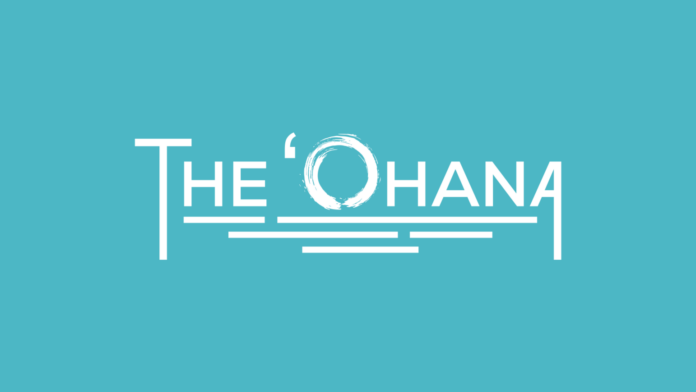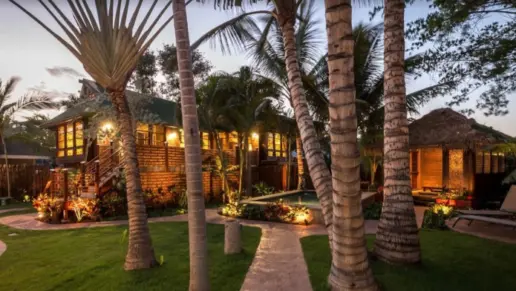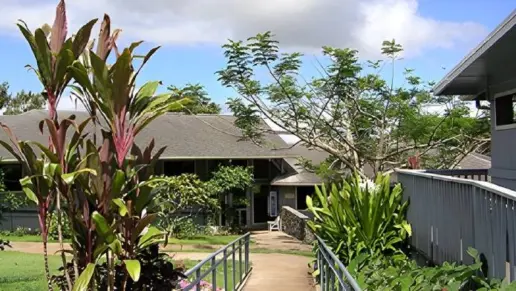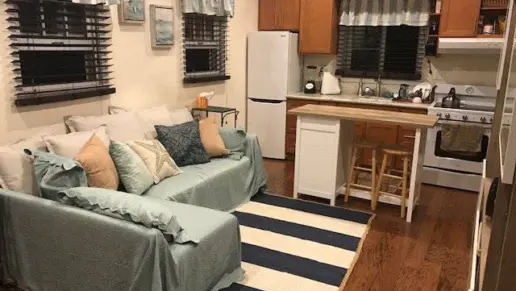About The Ohana Addiction Treatment Center
The Ohana Addiction Treatment Center is a world-class alcohol and drug abuse treatment facility on the Big Island of Hawaii. Our single Intensive Outpatient Treatment program is integrated within a sober living environment. After successfully detoxing, Clients join our integrated IOP/SLE program for 30-120 days on their path to recovery in Hawaii.
The Ohana is the only world-class intensive outpatient center and integrated sober living facility
for the treatment of substance abuse on the Island of Hawaii. We are a therapeutic, trauma informed haven that is centered in spirituality— acclaimed by patients, physicians, carriers, and employees who seek long-term results for their patients. Our vision is achieved through our commitment to: Excellence in service, trauma informed care, employee development, ethical and fair treatment of all, tools for maintaining long-term sobriety, compassion, and innovative therapeutic techniques.
Our outpatient day program has the highest level of care and structure provided within a sober living facility. In a day program, clients commit to meeting 5 days per week for multiple hours each day. During this time, patients will participate in ongoing therapy, group counseling, biofeedback, and other adjunct therapies, such as art or music therapy as well as group adventures around the island. Patients remain in our sober living facility after each session. Our day program requires a time commitment however, patients have the availability to work or go to school part-time after therapy each day and on weekends.
Set amidst the peaceful Hawaiian landscape, patients explore attachment traumas, find long-term recovery, explore spirituality, and participate in adventures across the island in a safe and therapeutic environment that prevents chronic relapse.
Latest Reviews
Rehab Score
Gallery
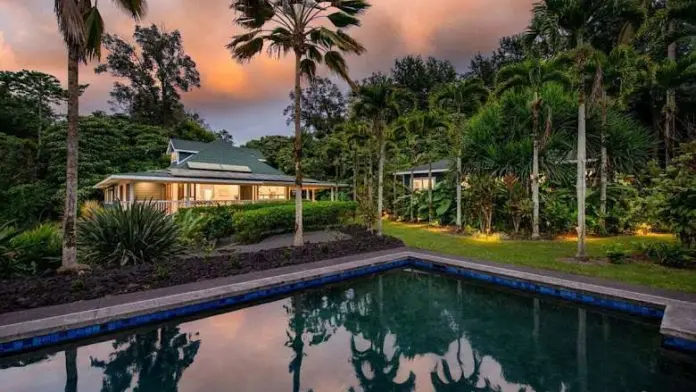

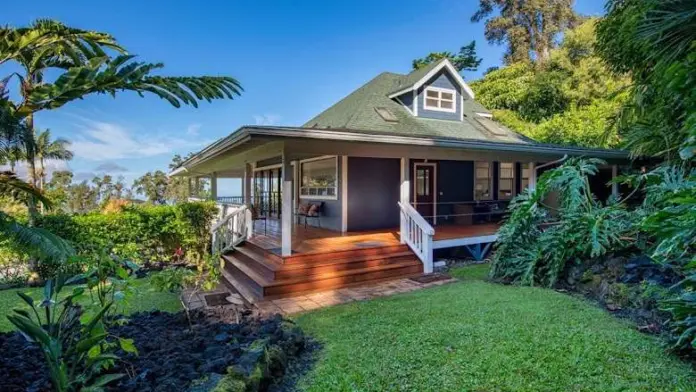
Location
Accepted Insurance
Other Forms of Payment
Private insurance refers to any kind of healthcare coverage that isn't from the state or federal government. This includes individual and family plans offered by an employer or purchased from the Insurance Marketplace. Every plan will have different requirements and out of pocket costs so be sure to get the full details before you start treatment.
Self-pay involves paying for treatment out of your own pocket. You can use savings or credit, get a personal loan, or receive help from family and friends to fund your treatment. If you don't have insurance or your insurance plan doesn't cover a specific program, self-pay can help ensure you still get the care you need.
Military members, veterans, and eligible dependents have access to specific insurance programs that help them get the care they need. TRICARE and VA insurance can help you access low cost or no cost addiction and mental health treatment. Programs that accept military insurance often have targeted treatment focused on the unique challenges military members, veterans, and their families face.
Addiction Treatments
Levels of Care
Treatments
Substance rehabs focus on helping individuals recover from substance abuse, including alcohol and drug addiction (both illegal and prescription drugs). They often include the opportunity to engage in both individual as well as group therapy.
Programs



Clinical Services
Cognitive Behavioral Therapy (CBT) is a therapy modality that focuses on the relationship between one's thoughts, feelings, and behaviors. It is used to establish and allow for healthy responses to thoughts and feelings (instead of unhealthy responses, like using drugs or alcohol). CBT has been proven effective for recovering addicts of all kinds, and is used to strengthen a patient's own self-awareness and ability to self-regulate. CBT allows individuals to monitor their own emotional state, become more adept at communicating with others, and manage stress without needing to engage in substance abuse.
Dialectical Behavior Therapy (DBT) is a modified form of Cognitive Behavioral Therapy (CBT), a treatment designed to help people understand and ultimately affect the relationship between their thoughts, feelings, and behaviors. DBT is often used for individuals who struggle with self-harm behaviors, such as self-mutilation (cutting) and suicidal thoughts, urges, or attempts. It has been proven clinically effective for those who struggle with out-of-control emotions and mental health illnesses like Borderline Personality Disorder.
Within a group therapy environment, people can see other individuals walk through a successful recovery and model behaviors that provide them with inspiration and practical examples of how to manage their addiction and maintain their sobriety within the community.
Customized individual therapy programs involve one on one sessions with a therapist to address the psychological aspects of addictive behavior. Your therapist uses evidence based treatment modalities to help you develop healthy coping strategies and manage addiction triggers within the community.
Motivational interviewing is simply a conversation about change. The therapist seeks to encourage the client's personal motivation to change and collaborate with them to make a commitment to change. This technique is often used in drug rehab therapy in Hawaii.
During trauma therapy in Hawaii, your therapist helps you reclaim your life after witnessing or experiencing a traumatic event. Therapy assists you in processing the memories and fostering emotional healing. This helps to build resilience so you can navigate future challenges more successfully.
During couples therapy in Hawaii, your therapist may borrow techniques from multiple forms of therapy based on your needs. Methods may include cognitive behavioral therapy and emotionally focused therapy. The ultimate goal of treatment is a stronger relationship.
Family therapy engages members in a collective effort to understand and combat addiction. Therapists help families establish healthy boundaries and improve emotional support systems. By working together, family members can help their loved one sustain long term recovery.
During treatment, you'll work on strengthening any life skills you'll need after rehab. These may include interpersonal communication, finding a job, managing finances, and coping with stress. These skills cover the basic tasks you'll need to accomplish to successfully maintain sobriety.
Nicotine replacement therapy (NRT) in Hawaii is an important piece of most smokers' quit plans. It's available in multiple formats, so you can choose the one that's best for you. Most NRT products, such as patches and gum, are safe for nearly all nonpregnant adults.
Amenities
-
Residential Setting
-
Private Rooms
-
Spa
-
Gardens
Staff & Accreditations
Staff
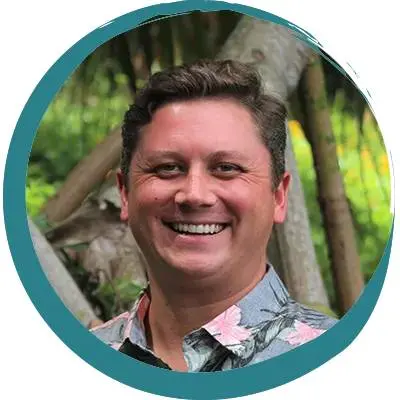
CEO
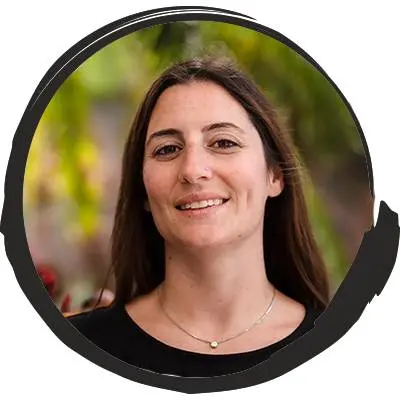
ED
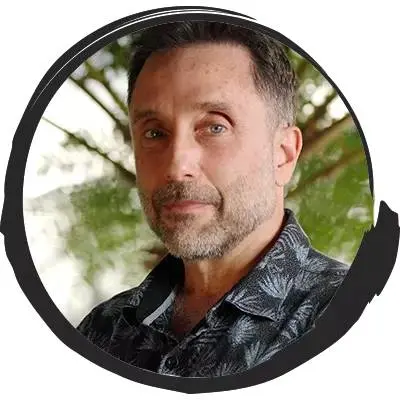
CCO & MD
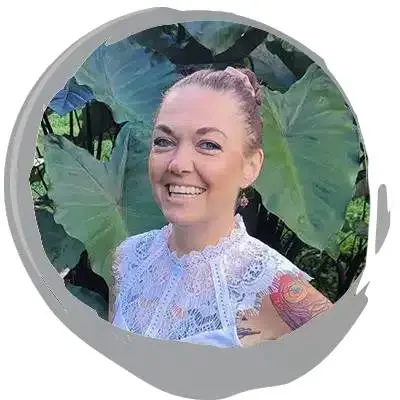
CD
Accreditations

LegitScript has reviewed The Ohana Addiction Treatment Center as part of their certification program, and has determined that it meets the LegitScript standards for legality, safety and transparency.
LegitScript verified in

The Joint Commission, formerly known as JCAHO, is a nonprofit organization that accredits rehab organizations and programs. Founded in 1951, the Joint Commision's mission is to improve the quality of patient care and demonstrating the quality of patient care.
Joint Commission Accreditation: Yes

The National Association of Addiction Treatment Providers (NAATP) is a professional association that represents organizations in the field of addiction services. Founded in 1978, NAATP's mission is to advance addiction services and ensure that high-quality addiction treatment is available and accessible.
NAATP Member: Yes
Contact Information
75-5915 Walua Road
Kailua-Kona, HI 96740
